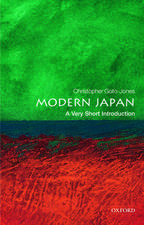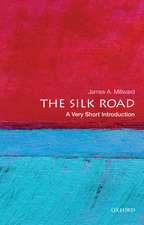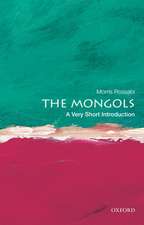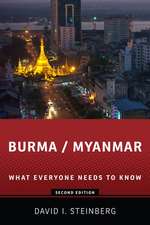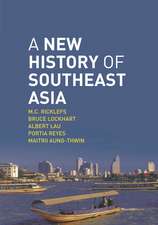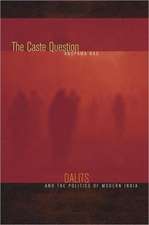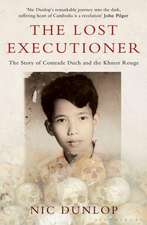The Quest for the Origins of Vedic Culture: The Indo-Aryan Migration Debate
Autor Edwin Bryanten Limba Engleză Paperback – 18 dec 2003
Preț: 320.45 lei
Nou
Puncte Express: 481
Preț estimativ în valută:
61.32€ • 65.57$ • 51.13£
61.32€ • 65.57$ • 51.13£
Carte tipărită la comandă
Livrare economică 07-14 aprilie
Preluare comenzi: 021 569.72.76
Specificații
ISBN-13: 9780195169478
ISBN-10: 0195169476
Pagini: 400
Ilustrații: 11 maps, 1 halftone & 4 line illus
Dimensiuni: 154 x 230 x 24 mm
Greutate: 0.61 kg
Editura: Oxford University Press
Colecția OUP USA
Locul publicării:New York, United States
ISBN-10: 0195169476
Pagini: 400
Ilustrații: 11 maps, 1 halftone & 4 line illus
Dimensiuni: 154 x 230 x 24 mm
Greutate: 0.61 kg
Editura: Oxford University Press
Colecția OUP USA
Locul publicării:New York, United States
Recenzii
"A balanced description and evaluation of the two century old debate dealing with the origins of the Indo-Aryan speaking peoples of South Asia. [Bryant] presents both sides of the issue, that is the traditional western, linguistic, and philological consensus of immigration from Central Asia, and the more recent Indian position that denies any immigration and that asserts an indigenous South Asian origin. He probes for loopholes on both sides of the argument and presents the multi-faceted evidence from linguistics, archaeology, texts, etc. in an even-handed manner. As such, the book not only is an important and very welcome introduction into recent Indian historical thought but also a valuable heuristic tool in re-evaluating many of the unspoken or un-reflected presuppositions on both sides."--Michael Witzel, Harvard University
"The problem of Indo-Aryan origins has vexed scholars in both India and the West for well over a century and has touched every nerve of both academic and political discourse, so much so that many in the West have automatically dismissed any arguments to come 'out of India'[this book] investigates how these two worlds of scholarship came into being and systematically exposes the logical weaknesses of most of the arguments that support the consensus f either side. This is not only an important work in the field of Indo-Aryan studies but a long overdue challenge for scholarly fair play."--J.P. Mallory, Queen's University of Belfast
"The problem of Indo-Aryan origins has vexed scholars in both India and the West for well over a century and has touched every nerve of both academic and political discourse, so much so that many in the West have automatically dismissed any arguments to come 'out of India'[this book] investigates how these two worlds of scholarship came into being and systematically exposes the logical weaknesses of most of the arguments that support the consensus f either side. This is not only an important work in the field of Indo-Aryan studies but a long overdue challenge for scholarly fair play."--J.P. Mallory, Queen's University of Belfast


